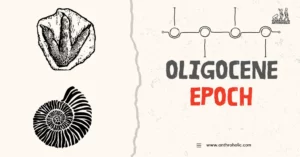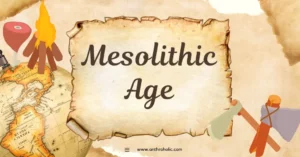AI Answer Evaluation Platform Live Now. Try Free Answer Evaluation Now
Kinship Terminology
Kinship terminology refers to the systems of classifying and naming familial relationships within a given society [1]. It plays a crucial role in anthropological studies, as it provides insights into the ways in which societies structure and perceive kinship. Kinship terminology not only serves as a linguistic tool but also reflects the social organization and cultural values of a community. This article aims to explore the significance of kin groups in understanding kinship terminology, highlighting various anthropological perspectives [2].

Kinship Terminology and Classification Systems
- Different societies employ diverse kinship terminology systems, which are often categorized into two main types: descriptive and classificatory systems.
- Descriptive systems, commonly found in small-scale societies, provide distinct terms for each type of kin relationship.
- For example, the Iroquois system uses specific terms for maternal and paternal aunts and uncles, while distinguishing between the mother’s sister and the father’s sister.
- Conversely, classificatory systems, often found in larger societies, group relatives into broader categories based on generational or gender distinctions.
- The Hawaiian system, for instance, employs the same term for all siblings of the same sex, regardless of whether they are biological or affinal.
The Significance of Kin Groups
Kinship terminology is closely intertwined with the formation and identification of kin groups within a society. Kin groups, also known as kinship units or social units, are formed by individuals who share a particular kinship relationship or affiliation. These groups play a vital role in social organization, economic cooperation, and the transmission of cultural values across generations.
Descent-Based Kin Groups
- Many societies organize kinship groups based on descent.
- Descent groups trace their ancestry through either matrilineal or patrilineal lines.
- For instance, matrilineal societies like the Minangkabau of Indonesia emphasize kinship ties through the female line, while patrilineal societies like the Akan of Ghana prioritize kinship ties through the male line.
- These descent-based kin groups often have specific names and carry out important functions such as inheritance, social obligations, and political alliances.
Affinal Kin Groups
- Affinal kin groups are formed through marriage or other forms of alliance.
- These groups are critical in establishing relationships between families and communities.
- The Trobriand Islanders, for example, recognize the importance of affinal kin groups called “sibou” and consider them as foundational units for cooperative labor and social support.
- Affinal kin groups play a significant role in determining social status, regulating marriage patterns, and creating networks of reciprocity.
Lineages and Clans
- Lineages and clans represent extended kinship groups that provide a framework for organizing social life in many societies.
- Lineages are traced through a common ancestor, while clans often encompass multiple lineages with shared descent myths and rituals.
- These kin groups are prevalent in societies such as the Navajo Nation in North America, where clans play a fundamental role in identity formation, ceremonial practices, and land rights.
- Lineages and clans contribute to the social cohesion and solidarity of communities, strengthening connections beyond immediate family ties.
Conclusion
Kinship terminology and the formation of kin groups are interconnected aspects of social organization in diverse societies. The study of kinship terminology allows anthropologists to unravel the complex web of relationships within a community, providing insights into cultural values, social roles, and patterns of cooperation. Descriptive and classificatory systems reveal how societies categorize and understand familial relationships.
Kin groups, on the other hand, serve as foundational units for social, economic, and political interactions, shaping the social fabric of a society. By examining the diverse kinship terminology systems and the significance of kin groups across different cultures, anthropologists gain a deeper understanding of the complexities of human social organization and the cultural contexts in which kinship operates.
References
[1] Schneider, D. M. (1968). American kinship: A cultural account. Prentice-Hall.
[2] Leach, E. R. (1961). Rethinking anthropology. Athlone Press. https://monoskop.org/images/1/19/Leach_Edmund_Rethinking_Anthropology_1971.pdf




